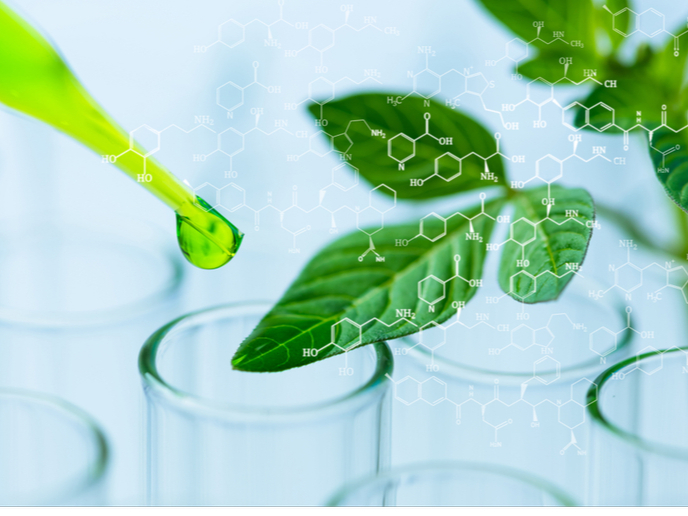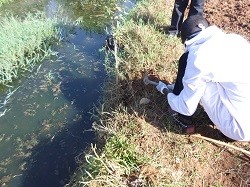Plant-friendly microbes for more sustainable agriculture
Bacterial disease is industrial agriculture’s worst nightmare. It reduces yield, spreads like wildfire and cuts down profit margins. The answer so far has been nothing short of catastrophic either: Fungicides, bactericides and nematicides sprayed on crops not only contribute to the degradation of the environment, but can also become less efficient against microbes within fruits and vegetables. According to Diego Romero, professor in the Department of Microbiology at the University of Malaga, it is now time for new approaches putting emphasis on sustainability. With the ERC-funded project BacBio (Mechanistic and functional studies of Bacillus biofilms assembly on plants, and their impact in sustainable agriculture and food safety), which was kick-started in 2015, he aims to answer one question: Is it possible to protect plants with beneficial microbes partly replacing pesticides, while avoiding contamination by human pathogens in the process? “Maybe there is a conceptual problem in current agriculture. I think we should forget the idea of microbe-free products and try to find a balance between the microbial load in the product and the collateral damage we inflict on the environment,” he explains. “I would personally put more effort into reducing damage to the environment, which over the long term would benefit agriculture.” Implicitly, this new approach calls for a diversification of strategies. Environmental conditions are not the same across regions, and greenhouse cultures add an extra layer of complexity. This means that microbial diseases will evolve differently in different environments, and that potential solutions will have to differ accordingly. BacBio is showing the way forward by studying the extracellular matrix (ECM) of two microbe communities (also known as biofilms). “We specifically study Bacillus subtilis and Bacillus cereus, two related organisms with very different functions. The former is a biocontrol agent that protects plants, whilst the latter is pathogenic to humans. By studying these two soil-dwelling microbes living in association with plants, we can understand the chemical differences between their respective ECMs. The idea is to potentiate the benefits inflected by B. subtilis to plants while reducing or avoiding B. cereus,” Romero adds.
The role of proteins
One of the most notable project findings so far is related to the way Bacillus adapts in order to live in more complex environments such as plants. “In B. subtilis, we have found that exopolysaccharide and a hydrophobic protein in the ECM form a shield that impedes access of foreign cells into the colony. If you remove these components, another microbe living on plants can penetrate the Bacillus colony,” Romero notes. The team also characterised an amyloid protein required to assemble the biofilm of Bacillus. Mainly known for their implication in human disorders, amyloids are widely distributed in nature and can contribute to define the physiological status of bacterial cells. They also have a double role: a lack of amyloid leads to an increase in antimicrobial production by the Bacillus, whilst cells within the phylloplane (the leaf’s surface) become more sensitive to its presence. “We believe that Bacillus uses these two roles of the amyloid to complementarily permit the cells to adhere, colonise and persist in the aggressive phylloplane. It provides successful control of fungal diseases,” Romero says. By improving our understanding of the way bacteria transition from isolated entities to an organised community interacting with plants, the project could have a considerable impact in the field of agro-biotechnology. Romero hopes his findings will eventually enable the production of beneficial microbes for more sustainable and diversified agriculture.







